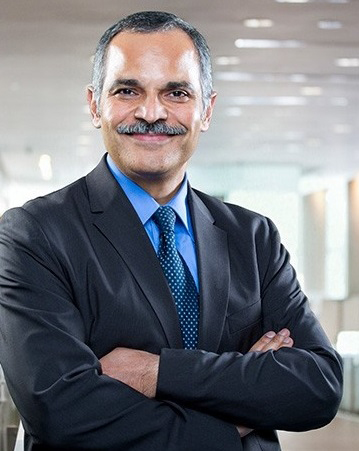Planning for the new Markham Campus (MC) continues to take shape as three research and innovation clusters emerge as possibilities.
The pan-University Markham Research, Innovation and Research Partnerships committee (RIRP), headed by Vice-President Research and Innovation Amir Asif, is exploring research areas that align closely with academic programs at the new campus, and will tap into the spirit of research and innovation already happening in the City of Markham and across York Region. The goal is to create a distinct vision that will encourage synergies, while avoiding duplication with the University's Keele and Glendon campuses.

“The research will have a strong interdisciplinary focus and be collaborative with tri-councils, local industry and regional organizations, and should enhance and engage research and innovation across all York University campuses,” says Asif. “The initial goal is to establish several transdisciplinary research and innovation clusters at the new campus, which will be complemented by the strong entrepreneurship focus already established with Markham Centre by YSpace Markham.”
RIRP has the primary responsibility for developing and implementing research and innovation plans for MC with recommendations flowing to the Markham Steering Committee and the Academic Policy, Planning and Research Committee.
“MC is a once in a lifetime opportunity for faculty members and University administrators to become part of building research programs from the ground up. It’s an opportunity for us to do something unique,” says Asif.
The three research clusters emerging as the most likely eventual candidates are Artificial Intelligence and Society (AI), Digital Cultures, and Financial Technology (FinTech), but consultation is ongoing. York’s Artificial Intelligence and Society Task Force is already looking at AI scholarship in a holistic way that includes development of new AI technologies and applications in numerous fields, and how it could have a presence at the Markham Campus.
“MC will be a research-intensive centre on par with the Keele and Glendon campuses with research opportunities for both undergraduate and graduate students. It will be important to build on existing research and innovation partnerships and expand on those with our researchers,” says Asif.
Having experiential education opportunities such as placements of undergraduate and graduate students in industry and community organizations as well as those within the York start-up ecosystem is another important element the team is working toward.
“One big advantage of the MC is that industry is right in our neighbourhood, which would allow for many different research partnerships, as well as innovation and entrepreneurship opportunities, not only for Faculty members, but also for our undergraduate and graduate students,” says Asif. “York Region is Canada’s second largest technology hub, and that could lead to interesting research and innovation possibilities for York researchers.”
Collaborating with industry, social organizations and the community will allow for a flow of ideas both ways. Students and faculty members will have the opportunity to connect with industry and community organizations and have opportunities to innovate, solve socially relevant problems and collaborate on new initiatives. In addition, YSpace will deliver entrepreneurial programming to mentor student and community entrepreneurs in developing, launching and growing their start-up ventures, as well as support Faculties and research clusters to connect to and leverage the entrepreneurial ecosystem in York Region.
